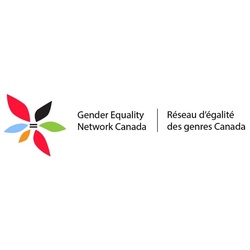
The Low Carbon Economy Fund - Implementation Readiness Fund
At a glance
- No Condition
- Receipt of requests is now closed
- Public administration
- Canada
- Non-profit
- Public or Parapublic institution
- For-profit business
- All revenue ranges
- All organization sizes
- Indigenous Peoples
- Canadians
- Primary and Secondary Education
- Higher Education
- Research
- Hospitals and Rehabilitation
- Environment
- Economic, Social and Community Development
- Employment and Training
- Diversity and Inclusion
- Indigenous peoples
- Rural / Remote communities
- Business owners / entrepreneurs
- Nonprofits / charities
- Academia / students
- Community leaders
- All structures
- Municipal
- Regional
- Provincial
- National
Overview
The Implementation Readiness Fund, under Canada's Low Carbon Economy Fund, aims to support the 2030 Emissions Reduction Plan by funding projects that boost deployment readiness for GHG emissions reductions and overcome barriers to low-carbon technology adoption. Eligible activities include workforce development and training, as well as network development and knowledge sharing to prepare organizations for implementing GHG reduction initiatives.
Activities funded
This funding initiative promotes activities that enhance organizational capabilities and expertise in reducing greenhouse gas emissions. Eligible projects are centered around developing human capital and creating networks to facilitate knowledge sharing for climate action.
- Workforce development and training programs to create curriculum and deliver training that enhances skills for GHG emissions reduction solutions.
- Network development and knowledge sharing initiatives to build networks and share best practices for implementing GHG emissions reduction technologies.
Eligibility
The Implementation Readiness Fund requires specific eligibility criteria for invited organizations to qualify.
- The organization must be one of the following:
- Canadian not-for-profit organization
- Canadian for-profit organization
- Canadian public sector body or board
- Canadian research, academic, and educational institution
- Indigenous government, community or organization in Canada
- The organization must demonstrate a broad reach.
- The organization must have the capacity to deliver the proposed project.
- The organization must possess in-depth knowledge of GHG emissions reduction measures and challenges facing the target audience.
- The organization should have experience offering workforce development and/or network building initiatives that contribute to GHG emissions reduction actions.
- The organization should have experience serving small and medium-sized enterprises, municipalities, school boards, colleges, universities, hospitals, and/or Indigenous communities and organizations.
- Experience with proactive communication with their target audience is considered an asset.
- Experience serving equity-deserving groups is considered an asset.
Who is eligible?
Organizations invited to apply must have been:- Canadian not-for-profit organizations- Canadian for-profit organizations- Canadian public sector bodies or boards- Canadian research, academic, and educational institutions- Indigenous governments, communities, or organizations in CanadaEligible organizations would need to demonstrate:- A broad reach- Organizational capacity to deliver the proposed project- In-depth knowledge of GHG emissions reduction measures and challenges- Experience in workforce development and/or network building initiatives- Experience serving SMEs, municipalities, educational institutions, hospitals, and/or Indigenous communities- Experience with proactive communication with the target audience (asset)- Experience serving equity-deserving groups (asset)Eligible expenses
Projects eligible for this grant focus on building capacity and removing barriers to deploy GHG emissions reduction technologies effectively. These activities aim to develop human resources and promote knowledge sharing to enhance the readiness for low-carbon technology implementation.
- Creating curriculum and delivering training programs for workforce development to support GHG emissions reduction solutions.
- Network building initiatives to share expertise and best practices for implementing GHG emissions reduction projects.
Eligible geographic areas
The geographical eligibility for this grant is defined by the types of organizations invited by Environment and Climate Change Canada. No specific regions outside of invited entities are targeted.
Contacts
Frequently Asked Questions about the The Low Carbon Economy Fund - Implementation Readiness Fund Program
What is the The Low Carbon Economy Fund - Implementation Readiness Fund?
Who is eligible for the The Low Carbon Economy Fund - Implementation Readiness Fund program?
What expenses are eligible under The Low Carbon Economy Fund - Implementation Readiness Fund?
Who can I contact for more information about the The Low Carbon Economy Fund - Implementation Readiness Fund?
Where is the The Low Carbon Economy Fund - Implementation Readiness Fund available?
Is the The Low Carbon Economy Fund - Implementation Readiness Fund a grant, loan, or tax credit?
Who are the financial supporters of the The Low Carbon Economy Fund - Implementation Readiness Fund?
More programs like this

CanExport GAC-Led Delegations
Trade Commissioner Service (TCS)
Canada Public Transit Fund
Housing, Infrastructure and Communities Canada (HICC)
Canada Service Corps – Service Placements Regional Stream
Employment and Social Development Canada (ESDC)
ISED — Artificial intelligence (AI)
Innovation, Science and Economic Development Canada (ISED)
Active Transportation Fund
Housing, Infrastructure and Communities Canada (HICC)
Equality for Sex, Sexual Orientation, Gender Identity and Expression Program
Women and Gender Equality Canada (WAGE)
Crime Prevention Action Fund (CPAF)
Public Safety Canada (PSC)
Substance Use and Addictions Program (SUAP)
Health Canada
Humanitarian Workforce (HWF) - COVID-19 and other large-scale emergencies
Public Safety Canada (PSC)